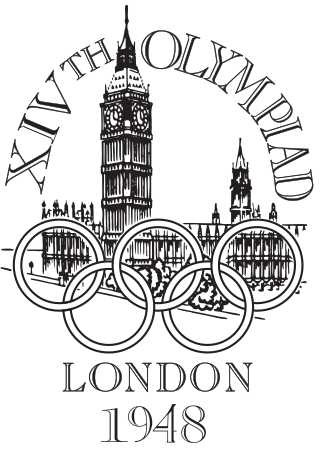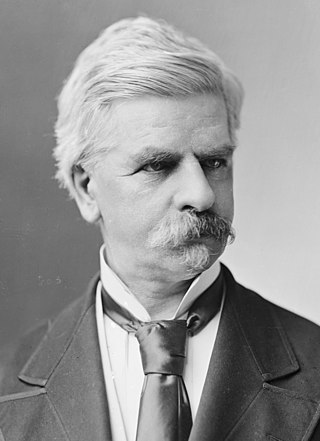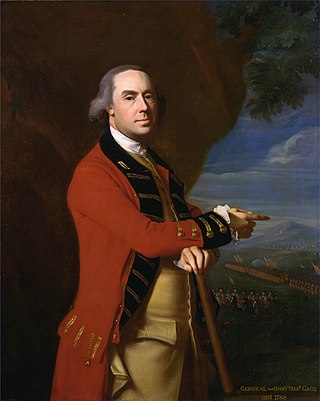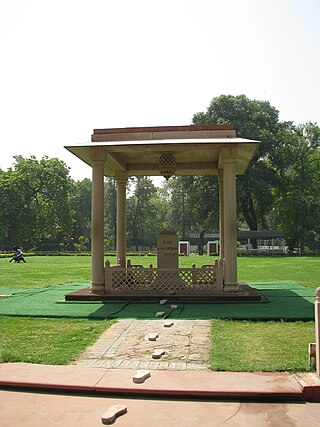Edwin Sikes was Archdeacon of Ross, Ireland from 1926 until 1950.
He was educated at Trinity College, Dublin and ordained in 1900. After a curacy in Castlemagner he held incumbencies at Ardnageehy, Cork, Shandon and Abbeystrewry. [1]
Edwin Sikes was Archdeacon of Ross, Ireland from 1926 until 1950.
He was educated at Trinity College, Dublin and ordained in 1900. After a curacy in Castlemagner he held incumbencies at Ardnageehy, Cork, Shandon and Abbeystrewry. [1]

Mohandas Karamchand Gandhi was an Indian lawyer, anti-colonial nationalist and political ethicist who employed nonviolent resistance to lead the successful campaign for India's independence from British rule. He inspired movements for civil rights and freedom across the world. The honorific Mahātmā, first applied to him in South Africa in 1914, is now used throughout the world.

The 1948 Arab–Israeli War, also known as the First Arab–Israeli War, followed the civil war in Mandatory Palestine as the second and final stage of the 1948 Palestine war. It formally began following the end of the British Mandate for Palestine at midnight on 14 May 1948; the Israeli Declaration of Independence had been issued earlier that day, and a military coalition of Arab states entered the territory of Mandatory Palestine in the morning of 15 May.

The 1948 United States presidential election was the 41st quadrennial presidential election. It was held on Tuesday, November 2, 1948. In one of the greatest election upsets in American history, incumbent President Harry S. Truman, the Democratic nominee, defeated heavily favored Republican Governor of New York Thomas E. Dewey, and third-party candidates, becoming the third president to succeed to the presidency upon his predecessor's death and be elected to a full term.

The 1948 Winter Olympics, officially known as the V Olympic Winter Games and commonly known as St. Moritz 1948, were a winter multi-sport event held from 30 January to 8 February 1948 in St. Moritz, Switzerland. The Games were the first to be celebrated after World War II; it had been twelve years since the last Winter Games in 1936.

The 1948 Summer Olympics were an international multi-sport event held from 29 July to 14 August 1948 in London, United Kingdom. Following a twelve-year hiatus caused by the outbreak of World War II, these were the first Summer Olympics held since the 1936 Games in Berlin. The 1940 Olympic Games had been scheduled for Tokyo and then for Helsinki, while the 1944 Olympic Games had been provisionally planned for London. This was the second time London hosted the Olympic Games, having previously hosted them in 1908, forty years earlier. The Olympics would return again to London 64 years later in 2012, making London the first city to host the games thrice, and the only such city until Paris and Los Angeles host their third games in 2024 and 2028, respectively. The 1948 Olympic Games were also the first of two summer Games held under the IOC presidency of Sigfrid Edström.

David Ben-Gurion was the primary national founder of the State of Israel as well as the state's first prime minister. Born in Płońsk, then part of Congress Poland, to Polish Jewish parents, he immigrated to the Palestine region of the Ottoman Empire in 1906. Adopting the name of Ben-Gurion in 1909, he rose to become the preeminent leader of the Jewish community in British-ruled Mandatory Palestine from 1935 until the establishment of the State of Israel in 1948, which he led until 1963 with a short break in 1954–55.

Nathaniel PrenticeBanks was an American politician from Massachusetts and a Union general during the Civil War. A millworker by background, Banks became prominent in local debating societies. He entered politics as a young adult. Initially a member of the Democratic Party, Banks's abolitionist views drew him to the nascent Republican Party, through which he won election to the United States House of Representatives and as Governor of Massachusetts in the 1850s. At the start of the 34th Congress, he was elected Speaker of the House in an election that spanned a record 133 ballots taken over the course of two months.

Emperor or Empress of India was a title used by British monarchs from 1 May 1876 to 22 June 1948 to signify their sovereignty over the British Raj as its imperial head of state. The image of the emperor or empress appeared on Indian currency, in government buildings, railway stations, courts, on statues etc. Oaths of allegiance were made to the emperor or empress and the lawful successors by the governors-general, princes, governors, commissioners in India in events such as imperial durbars.

General Thomas Gage was a British Army general officer and colonial official best known for his many years of service in North America, including his role as British commander-in-chief in the early days of the American Revolution.

Benny Morris is an Israeli historian. He was a professor of history in the Middle East Studies department of Ben-Gurion University of the Negev in the city of Beersheba, Israel. Morris was initially associated with the group of Israeli historians known as the "New Historians", a term he coined to describe himself and historians Avi Shlaim, Ilan Pappé and Simha Flapan. Scholars have perceived an ideological shift in Morris's work and a departure from the critical scholarship of his New Historian colleagues starting around 2000 during the Second Intifada.

Claude Denson Pepper was an American politician of the Democratic Party. He represented Florida in the United States Senate from 1936 to 1951, and the Miami area in the United States House of Representatives from 1963 until 1989. He was considered a spokesman for left-liberalism and the elderly.
The 1948 Democratic National Convention was held at Philadelphia Convention Hall in Philadelphia, Pennsylvania, from July 12 to July 15, 1948, and resulted in the nominations of President Harry S. Truman for a full term and Senator Alben W. Barkley of Kentucky for vice president in the 1948 presidential election.

Harry S. Truman was the 33rd president of the United States, serving from 1945 to 1953. A member of the Democratic Party, he previously served as a United States senator from Missouri from 1935 to 1945 and briefly as the 34th vice president in 1945 under Franklin D. Roosevelt. Assuming the presidency after Roosevelt's death, Truman implemented the Marshall Plan in the wake of World War II to rebuild the economy of Western Europe and established both the Truman Doctrine and NATO to contain the expansion of Soviet communism. He proposed numerous liberal domestic reforms, but few were enacted by the conservative coalition that dominated the Congress.

Mohandas Karamchand Gandhi was assassinated on 30 January 1948 at age 78 in the compound of Birla House, a large mansion in central New Delhi. His assassin was Nathuram Godse, a Chitpavan Brahmin from Pune, Maharashtra, a Hindu nationalist, a member of the Rashtriya Swayamsevak Sangh (RSS), a right-wing Hindu paramilitary organization as well as a member of the Hindu Mahasabha.
The 1947–1948 civil war in Mandatory Palestine was the first phase of the 1947–1949 Palestine war. It broke out after the General Assembly of the United Nations adopted a resolution on 29 November 1947 recommending the adoption of the Partition Plan for Palestine.

The degree Celsius is the unit of temperature on the Celsius scale, one of two temperature scales used in the International System of Units (SI), the other being the closely related Kelvin scale. The degree Celsius can refer to a specific temperature on the Celsius scale or to a difference or range between two temperatures. It is named after the Swedish astronomer Anders Celsius (1701–1744), who proposed the first version of it in 1742. The unit was called centigrade in several languages for many years. In 1948, the International Committee for Weights and Measures renamed it to honor Celsius and also to remove confusion with the term for one hundredth of a gradian in some languages. Most countries use this scale.

The Berlin Blockade was one of the first major international crises of the Cold War. During the multinational occupation of post–World War II Germany, the Soviet Union blocked the Western Allies' railway, road, and canal access to the sectors of Berlin under Western control. The Soviets offered to drop the blockade if the Western Allies withdrew the newly introduced Deutsche Mark from West Berlin.

In 1948, more than 700000 Palestinian Arabs – about half of prewar Mandatory Palestine's Arab population – fled from their homes or were expelled by Zionist militias and, later, the Israeli army during the 1948 Palestine war, following the Partition Plan for Palestine. The expulsion and flight was a central component of the fracturing, dispossession, and displacement of Palestinian society, known as the Nakba. Dozens of massacres were conducted by Israeli military forces and between 400 and 600 Palestinian villages were destroyed. Village wells were poisoned in a biological warfare programme and properties were looted to prevent Palestinian refugees from returning. Other sites were subject to Hebraization of Palestinian place names. These activities were not necessarily limited to the year 1948.

Mandatory Palestine was a geopolitical entity that existed between 1920 and 1948 in the region of Palestine under the terms of the League of Nations Mandate for Palestine.

The 1948 Palestine war was fought in the territory of what had been, at the start of the war, British-ruled Mandatory Palestine. It is known in Israel as the War of Independence and in Arabic as a central component of the Nakba. It is the first war of the Israeli–Palestinian conflict and the broader Arab–Israeli conflict. During the war, the British terminated the Mandate and withdrew, ending a period of rule which had begun in 1917, during the First World War. Beforehand, the area had been part of the Ottoman Empire. In May 1948, the State of Israel was established by the Jewish Yishuv, its creation having been declared on the last day of the Mandate. During the war, around 700,000 Palestinian Arabs were displaced.